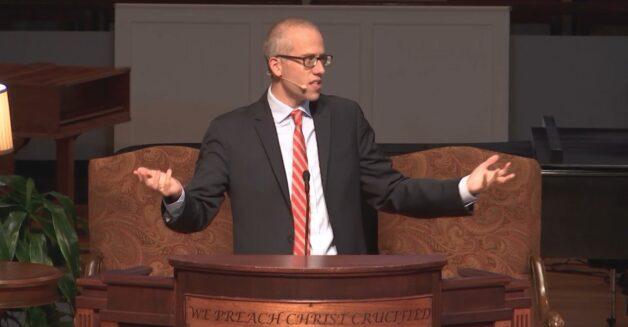
2 Corinthians 13
The grace of the Lord Jesus Christ and the love of God and the fellowship of the Holy Spirit be with you all. (2 Cor. 13:14)
So why does the doctrine of the Trinity matter? What is the “payoff ” for the ordinary Christian who is never going to be an expert in the metaphysics of Aquinas and is never going to throw around Latin and Greek phrases at the dinner table? Let me try to answer that question with seven points.
1. Most importantly, we should joyfully affirm that if God is triune, in one sense, no other justification is necessary for learning the doctrine of the Trinity. When you learn more about your spouse or grow to understand your child more fully, do you need a “payoff ”? Isn’t it enough simply to know more fully the one you love so deeply? Every true Christian should thrill to know God as he really is.
2. The doctrine matters for creation. Unlike the myths of the ancient Near East, our God did not need to go outside himself to create the universe. Instead, in fashioning the cosmos, the word and the Spirit were like his own two hands (to use Irenaeus’s famous phrase). Creation, like regeneration, is a Trinitarian act, with God working by the agency of the word and the mysterious movement of the Holy Spirit.
3. The doctrine of the Trinity helps us comprehend a world of unity and diversity. Robert Letham has noted that the two main rivals to Christianity in our day are Islam (which stresses cultural unity at the expense of diversity) and postmodernism (which emphasizes diversity without attempting to see things in a broader meta-unity). If God subsists as three persons sharing the same essence, then the world God made is likely to exhibit stunning variety and individuality while still being part of one larger story directed toward one shared purpose.
4. The doctrine of the Trinity matters for worship. Prayer, worship, and communion are Trinitarian acts. We pray to the Father in the name of the Son by the power of the Spirit. A time is coming, Jesus told the woman at the well, when true worshipers will worship the Father in spirit and truth (John 4:23). No worship can be fully Christian if it is not deeply Trinitarian.
5. The doctrine of the Trinity means that love is eternal. God did not create in order to be loved; he created out of the overflow of the perfect love that has always existed among Father, Son, and Holy Spirit.
6. The doctrine of the Trinity informs how we relate to others. While we must be careful not to think of the Trinity in social terms (as if God is a group of three friends hanging out), the fact that God is three in one does have social implications. The doctrine of the Trinity means communion and communication are inherent in the divine being, and thus we reflect God when we commune and communicate with others. Moreover, the Trinity shows how there can be relational mutuality without indistinguishability. Reflecting this pattern, we can know and be known by another while still retaining our own personhood.
7. Finally, the doctrine matters for how we relate to God. As John Owen insisted, we ought to enjoy distinct communion with each divine person. We know the Father as the fountain and source of all good. We know the Son as our advocate, our intercessor, our sacrifice, and our brother. And we know the Spirit as our sanctifier and comforter. In all three persons we find safety, satisfaction, sweetness, and delight.
This article is adapted from Daily Doctrine: A One-Year Guide to Systematic Theology by Kevin DeYoung.
Kevin DeYoung is the senior pastor at Christ Covenant Church (PCA) in Matthews, North Carolina and associate professor of systematic theology at Reformed Theological Seminary.



